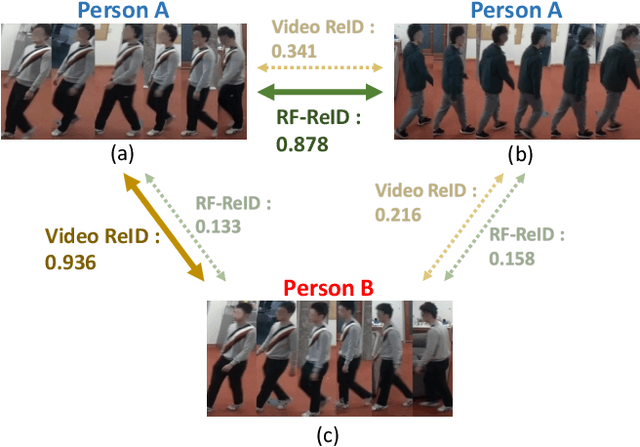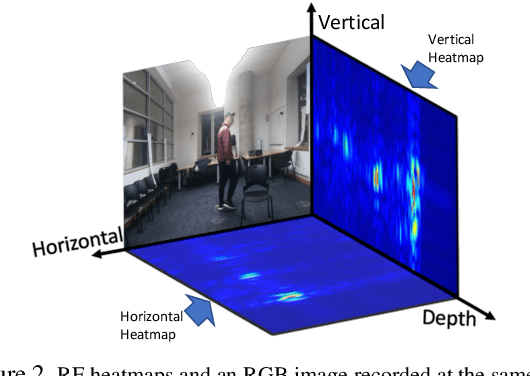Learning Longterm Representations for Person Re-Identification Using Radio Signals
Paper and Code
Apr 02, 2020



Person Re-Identification (ReID) aims to recognize a person-of-interest across different places and times. Existing ReID methods rely on images or videos collected using RGB cameras. They extract appearance features like clothes, shoes, hair, etc. Such features, however, can change drastically from one day to the next, leading to inability to identify people over extended time periods. In this paper, we introduce RF-ReID, a novel approach that harnesses radio frequency (RF) signals for longterm person ReID. RF signals traverse clothes and reflect off the human body; thus they can be used to extract more persistent human-identifying features like body size and shape. We evaluate the performance of RF-ReID on longitudinal datasets that span days and weeks, where the person may wear different clothes across days. Our experiments demonstrate that RF-ReID outperforms state-of-the-art RGB-based ReID approaches for long term person ReID. Our results also reveal two interesting features: First since RF signals work in the presence of occlusions and poor lighting, RF-ReID allows for person ReID in such scenarios. Second, unlike photos and videos which reveal personal and private information, RF signals are more privacy-preserving, and hence can help extend person ReID to privacy-concerned domains, like healthcare.
 Add to Chrome
Add to Chrome Add to Firefox
Add to Firefox Add to Edge
Add to Edge